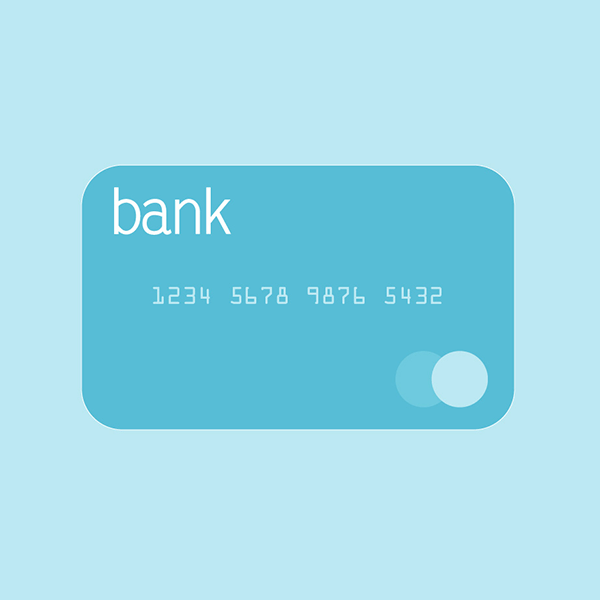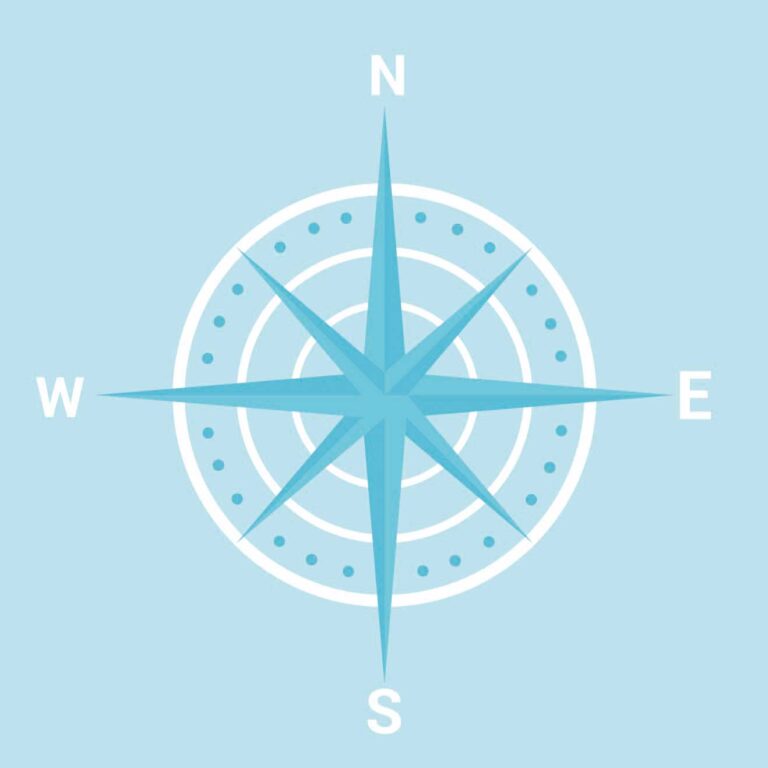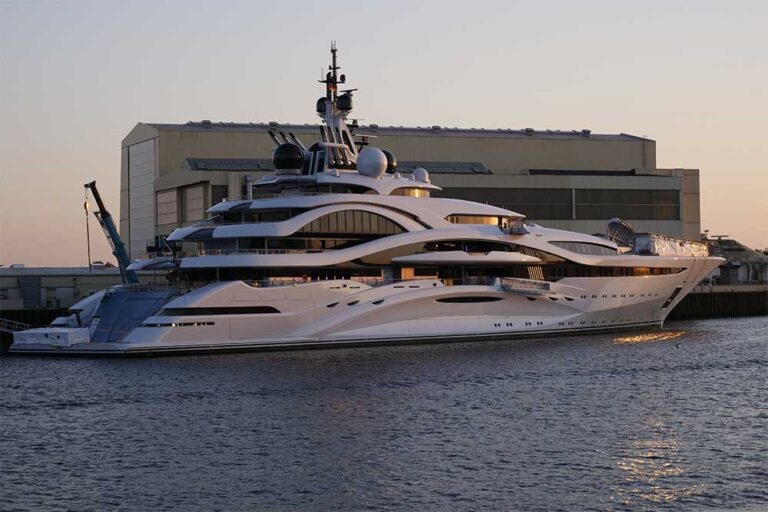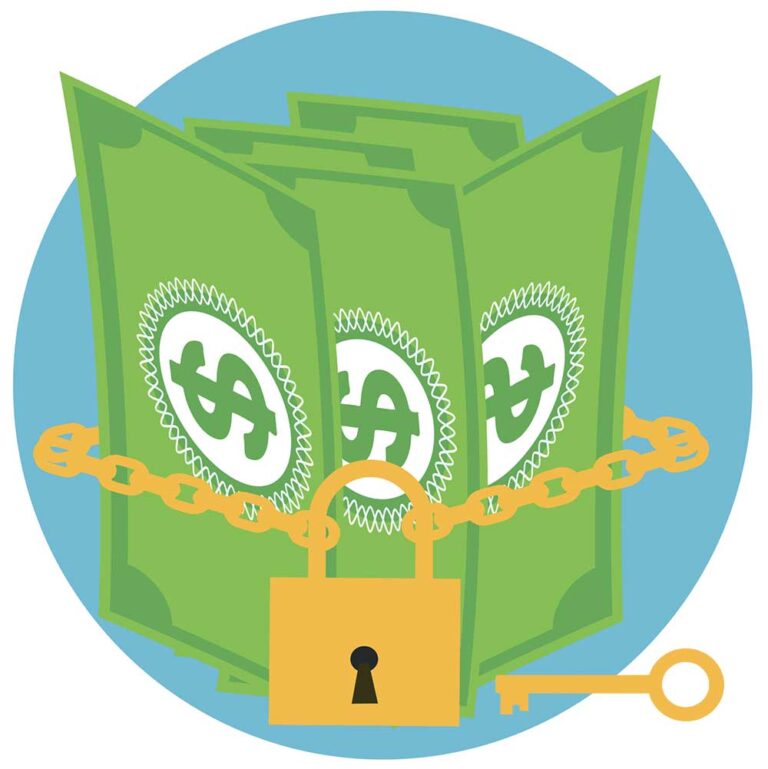Navigating the Seas of Offshore Banking for Superyacht Crew

The advice often given to superyacht crew is that they should have an ‘offshore’ bank account. But what does that mean? Why do you need one? And is it the same as an online-only bank account? Also, why not just have a high street bank account back home?
These questions and more are what we’ll cover in this article.
Start with why
As superyacht crew, your working life, and your life in general, is structured differently from people who work ashore. You live a far more mobile and international life. The superyacht industry demands a much bigger ‘on-site’ commitment and much more flexibility from you than a shore-based job.
By even saying that, you’ll probably get a sense that a high-street banking arrangement tied to a specific country might not be the best financial solution for you. Having a bank that exists only in a place where you don’t live and work daily doesn’t really make sense.
Even if the high-street bank has a brilliant app, allowing you to access and manage your account abroad, the bank itself will be tied to restrictions on what it can and cannot do for you overseas.
Also, moving money across borders, having multiple currency accounts and managing multi-currency transfers and conversions may be less straightforward or come at a higher cost.
These are big considerations for many superyacht crew. After all, not everyone comes from a country where the standard working currency is the US dollar, euro or UK pound. And anyone who works in yachting will need accounts in at least Euro and USD.
So while high-street bank accounts aren’t bad per sé, they aren’t ideal for someone like you, who spends most of their time outside their home country, earning money in a currency that isn’t your own.
International banking instead of offshore banking
A better banking solution for superyacht crew is an international bank account.
Before we go any further, let’s explain the difference between an international bank account and an offshore bank account. Here it is:
There isn’t one.
They are the same thing.
Except the word ‘international’ gives a much better idea of what this kind of bank account does. The word ‘offshore’ is being phased out. Partly because it has connotations of somehow being out of the ordinary and possibly not tax compliant. Additionally the word ‘offshore’ doesn’t help you understand what such a bank account is.
Saying that a bank account is ‘offshore’ suggests it is out in the sea somewhere. The phrase ‘offshore banking’ also seems restrictive and limited in its scope. And finally, it suggests it is disconnected from the regular world. Actually, the opposite is true on all counts.
That’s why ‘international’ bank account and ‘international’ banking are much better phrases. Immediately, you understand that they are global in their scope and offering. Much like the superyacht industry. International banking is for working ex-patriates, i.e. people working in an international industry, outside their country of nationality.
So from here on in, we (like the entire financial industry) we will refer the International Banks and International Bank accounts, rather than offshore banking and offshore bank accounts.

Where are international banks headquartered?
International banks are established in jurisdictions that make it easy for them to serve customers around the world, wherever they might be at any given time, like yacht crew. They are used to customer’s being in different time zones and making transactions
all over the world. In essence, they operate under an international banking licence.
Usually, this also means that they don’t operate in their own domestic market as a high-street bank.
International banks, like everyone else, like to establish themselves in politically stable locations. People often think of small island states, probably in the Caribbean, such as Bermuda or the Cayman Islands. However, you might be surprised that in terms of deposits, the USA is the largest international banking centre in the world.
That also suggests international banking centres aren’t all on islands, though they originated on islands off the UK like Isle of Man and the Channel Islands. Some are totally landlocked: Switzerland and Luxembourg, being prime examples.
Benefits of international Banking
Using an international bank can have a number of significant advantages.
The key ones are:
- International outlook
International banks, by default, are outward, global-looking organisations with a portfolio of services to match. They are designed from the outset to make banking internationally easy. High-street banks were designed to work locally and have an internal focus—which, by the way, is completely logical. - Stable political climate
For many people, the political or economic climate in their home country is unstable and it can be useful for them to be able to manage their money and transactions through a bank in a more stable political and economic environment, where account holder’s deposits are often guaranteed up to a limit by the government of that country. For example: The Isle of Man guarantees depositor’s accounts up to GBP 50,000, or currency equivalent, per account holder. - Lower fees
Some, but not all, international banks are able to operate with lower overheads than high-street banks. This means they can sometimes offer services at cheaper levels.
However, this really only applies to banks with a relatively limited physical infrastructure and number of employees, such as the online-only banks like Revolut or Wise which offer very competitive currency conversion rates.
One thing that doesn’t belong on this list is secrecy. It’s a misconception that international banks provide an impenetrable veil for their clients by default. The number of international banks offering anonymous banking has decreased enormously. Most international banks are now fully transparent to combat tax evasion and criminal activity, such as money laundering.
So, regardless of where you bank, you must fulfil your obligations as a taxpayer.
Downsides
This doesn’t mean international banking isn’t without its drawbacks.
An important consideration is how well-protected your money is in the event of a default by the bank.
Some international banking jurisdictions, like the Isle of Man, have depositor compensation schemes that provide a guarantee on deposits up to a certain level. £50,000 in the case of the Isle of Man. But such schemes are by no means universal. And they are capped.
In addition, especially in the case of the online-only international banks, the range of services may be more limited, particularly if you are using your bank account for more than
just receiving your salary, paying bills and transferring money back home.
Finally, access to a human being to help you with any problems can be very difficult.
International bank accounts for seafarers

For superyacht crew, there are two types of international bank account worth considering.
The first is an account with a traditional international bank that has both physical infrastructure, an international network of affiliate offices or representatives, and deep connections with the broader global banking system.
One of these offers bank accounts specifically designed for seafarers like you:
Standard Bank International Seafarer account.
Lloyds International also has accounts for working expatriates, which could be suitable. Both are headquartered in the Isle of Man.
We’ve been working together with Standard Bank International for years and have helped many superyacht crew set up a Seafarer account. And now it’s only become easier. Find out more on our banking page.
The other category of bank worth considering, though we’d suggest in conjunction with a Standard Bank International Seafarer account rather than as a substitute, is one of the relatively new online-only banks, such as Revolut or Wise.
These are certainly useful for day-to-day transactions, such as currency conversion, but if you are working with a financial plan, you’re better off using a Standard Bank or a Lloyds International account as the beating heart of your international financial setup as they have client service departments where you can speak to someone whenever you need help.
Also, because many online-only banks are so new, some aren’t yet fully licensed, which means things like money-guarantee schemes may not be in place or the range of their services may still be underdeveloped—even services you’d expect for everyday banking.
Where a financial planner fits in
Do you need a financial planner to help you with a bank account? No. Of course not.
However, if you are serious about your money and your financial future, particularly if you want to create and carry out a proper financial plan, speaking with a financial planner about which bank and bank account will serve you best is a good idea.
The team at Yachting Financial Solutions are very happy to discuss the right bank account for you. If you want to make an effective financial plan, you need to have the appropriate bank account fuelling it.
As always, Yachting Financial Solutions are very easy to reach if you have questions.
Just click the button below and schedule a call:
Alternatively, you can find out more about the Standard Bank International Seafarer account here:







